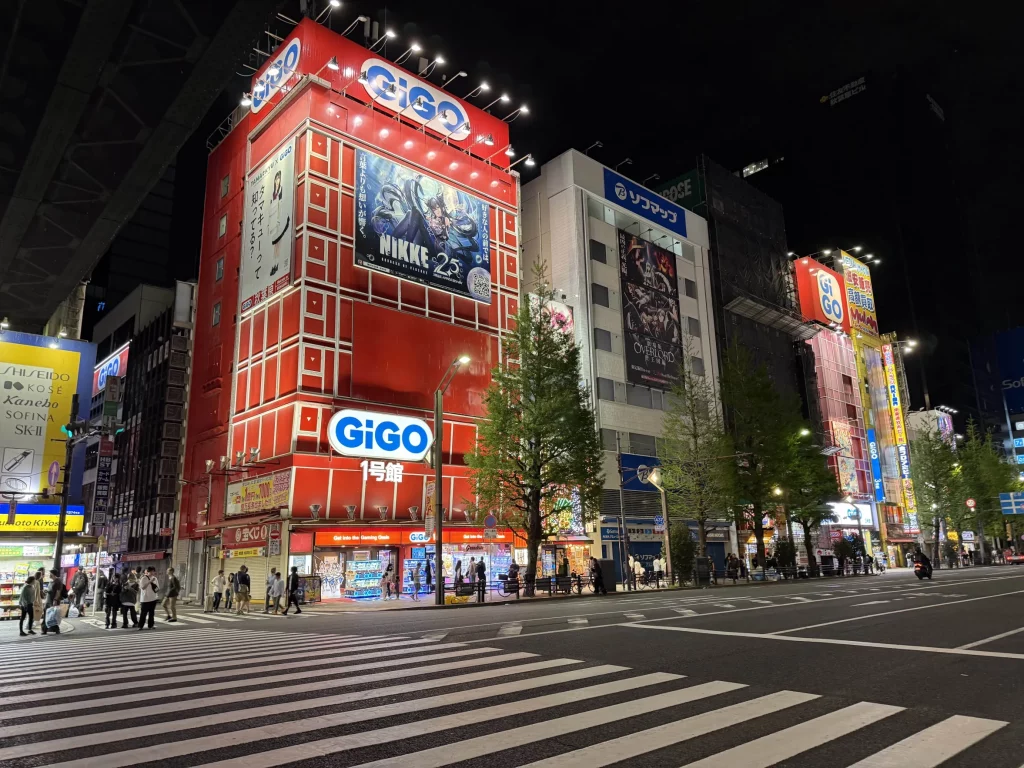In a bittersweet turn of events for gamers and nostalgia enthusiasts, the iconic Akihabara GiGO 1 arcade, previously a powerhouse of the gaming scene in Tokyo, is set to close its doors at the end of August 2025. This closure marks the end of an era for a location that has been a staple of the arcade community for 32 years. The news comes as the result of an expired fixed-term lease on the building, an unfortunate reality in the rapidly changing landscape of urban spaces.
A Rich History in Gaming
Originally opened in 1992 under SEGA’s banner, the arcade first operated as High Tech Land Sega Shintoku, before evolving into Club Sega Akihabara, and later, Sega Akihabara 1. The designation of “1” was significant, indicating that this was the first of five SEGA arcades in the Akihabara area. SEGA arcades have long been a destination for gaming enthusiasts, providing a space for social interaction and the thrill of arcade play.
The history of the Akihabara arcade scene is deeply interwoven with the identities of both the SEGA brand and the vibrant Akihabara district itself, known for its culture of anime, technology, and gaming. However, in 2020, SEGA made the decision to step away from operating arcades, instead focusing on machine production and other facets of their business, though they still manage locations like Joypolis, which offers a unique blend of arcade and theme park experiences.
In a significant shift in arcade ownership, Genda Co., Ltd. acquired SEGA’s arcade business in 2022. Genda had previously partnered with SEGA, providing a pathway for the company to leverage SEGA’s brand while expanding their own portfolio. Following this acquisition, Genda rebranded the arcades under the GiGO name, which stands for “Get into the Game Online.” This rebranding included all five Akihabara locations. Unfortunately, the back-to-back closures of significant locations, including GiGO 4 in 2022 for similar leasing issues, raise questions about the sustainability of arcade culture in urban Japan.
The Future of Gaming in Akihabara
While the closure of GiGO 1 is undoubtedly a loss for arcade enthusiasts, there is a glimmer of hope on the horizon. The space will not remain vacant for long; it has been announced that Matahari Entertainment, known for their Silk Hat arcade chain, will be taking over the building. This transition promises to maintain the arcade atmosphere in the heart of Akihabara, which has been an essential part of the local culture.
In addition to this development, GiGO has exciting plans of its own. They are set to inaugurate a new three-story arcade in Tokyo named GiGO Fuchu, slated to open around the same time as the Akihabara landmark’s closure. This new establishment aims to provide a fresh take on the traditional arcade experience in a contemporary environment, aligning with modern gaming trends and preferences. According to their official announcement, GiGO Fuchu will feature a variety of gaming options, from classic arcade machines to the latest in gaming technology, positioning itself as a must-visit for both vintage gamers and newcomers alike [SoraNews24].
Furthermore, SEGA is also making a return to the retail scene with the opening of a dedicated SEGA Store in Shibuya, suggesting that while their arcade presence may be diminishing, their branding and products will continue to resonate with fans across Japan [SEGA].
Market Reactions
The announcement of GiGO 1’s closure has sparked mixed reactions within the gaming community. Many fans are expressing their sadness over the loss of one of the last remnants of classic arcade culture in Akihabara. Social media platforms have been filled with nostalgic posts reminiscing about the countless hours spent on retro machines and modern titles alike. The emotional ties to these spaces highlight the significant cultural impact that arcades have had in shaping gaming history.
Market analysts have also noted that the changes in ownership and the closing of established locations could reflect broader trends within the entertainment industry, especially as digital gaming continues to rise in popularity. This trend has prompted arcade businesses to rethink their strategies, focusing on creating immersive experiences that bridge the gap between physical gaming and online engagement.
As the arcade landscape continues to evolve, it remains crucial for businesses to innovate and adapt to changing tastes. Whether through new locations like GiGO Fuchu or the revival of beloved brands in retail environments, the essence of arcade culture is poised to continue influencing the gaming world.
For those who wish to revisit the arcade experience before it disappears, there is still time to visit the Akihabara GiGO locations. Fans can also explore vlogs and walkthroughs that celebrate the legacy of these gaming havens in an effort to capture the spirit of SEGA history and arcade nostalgia.

